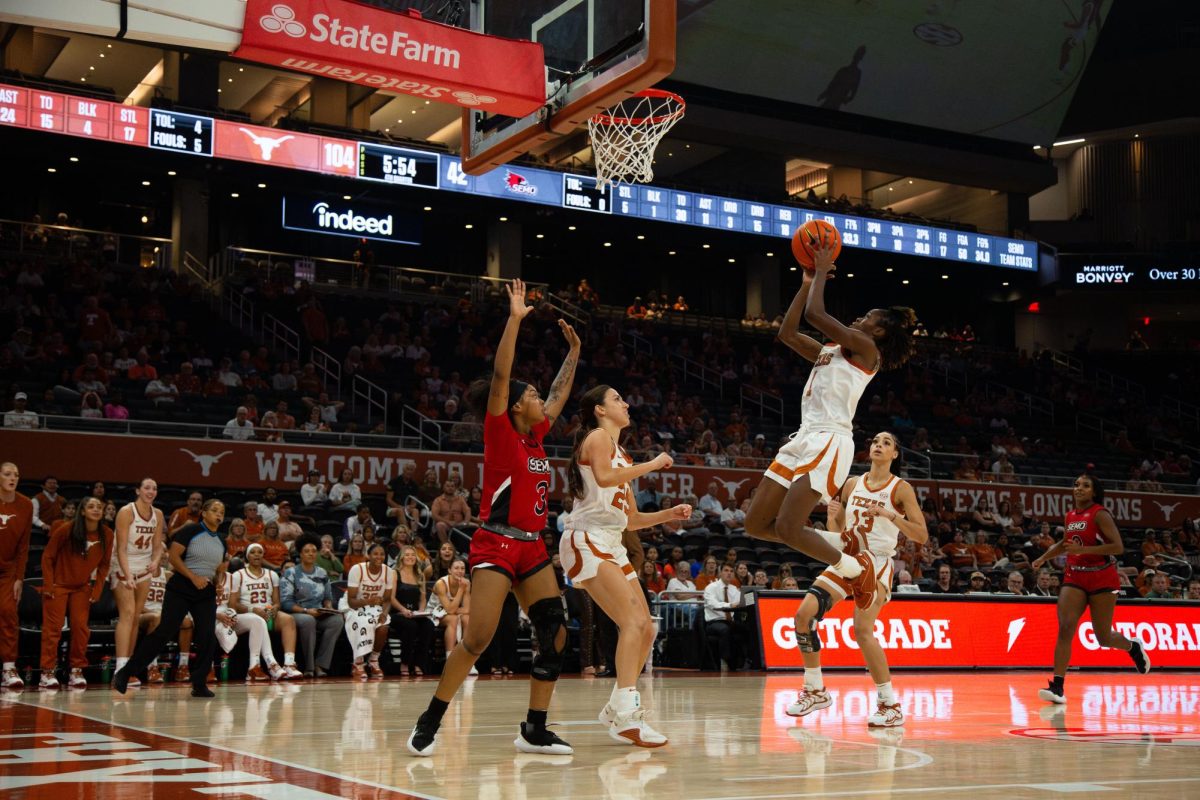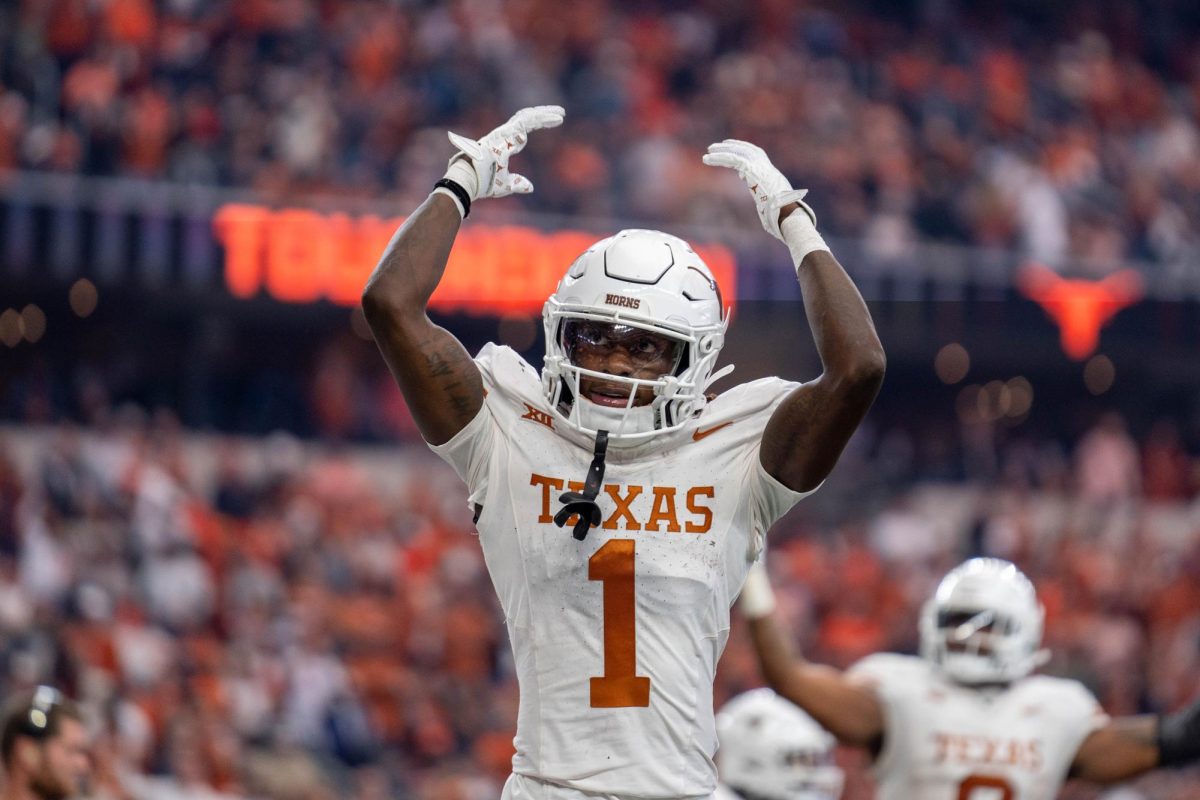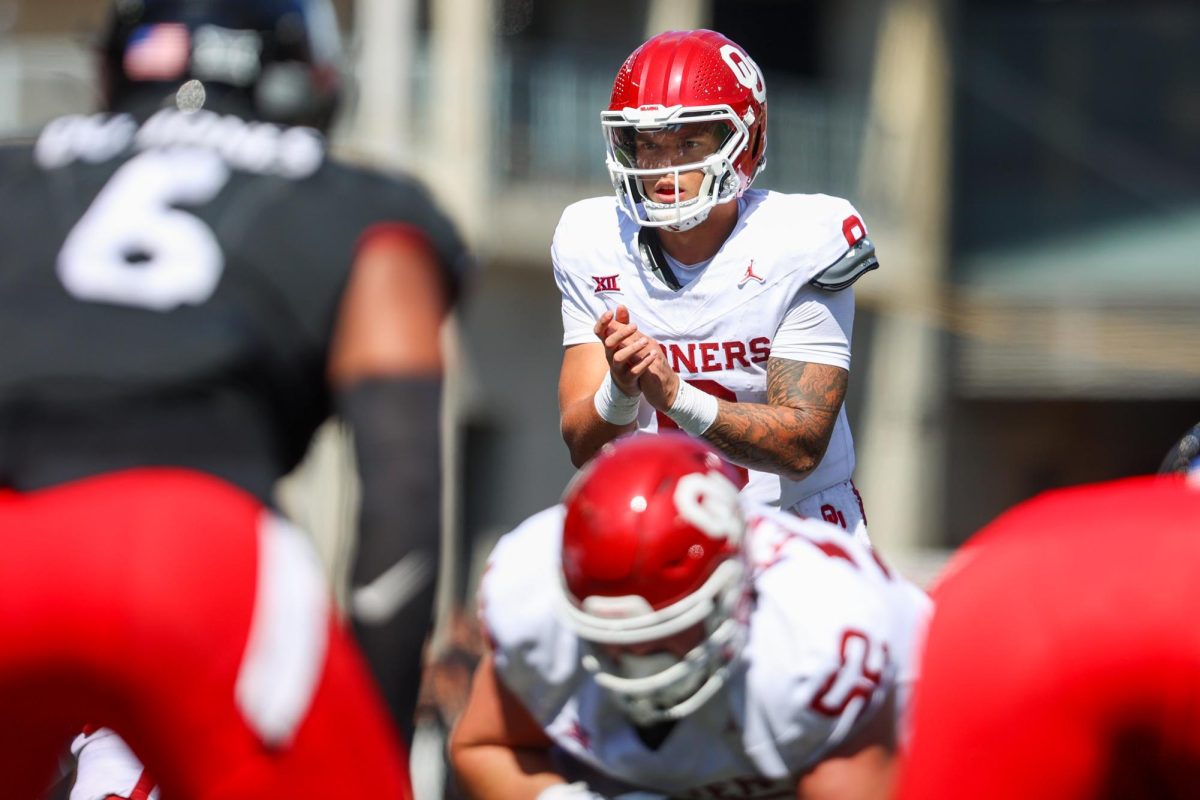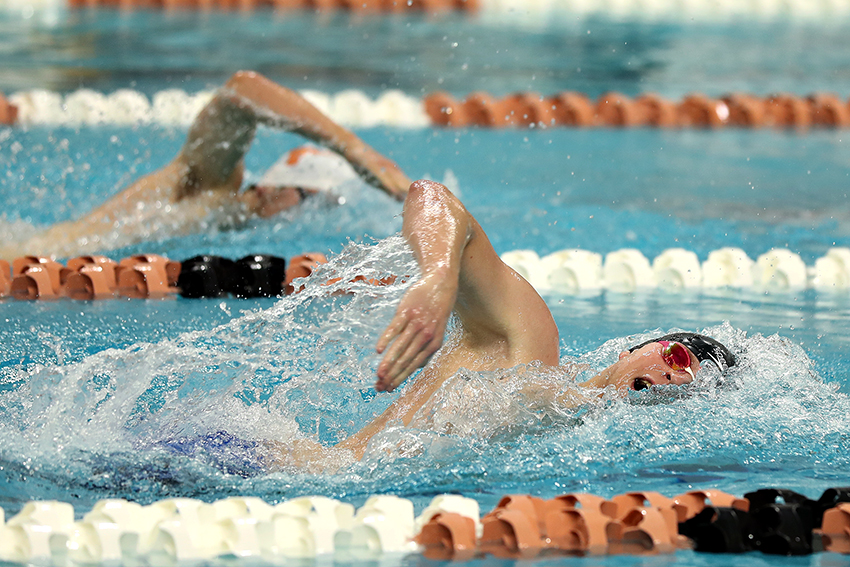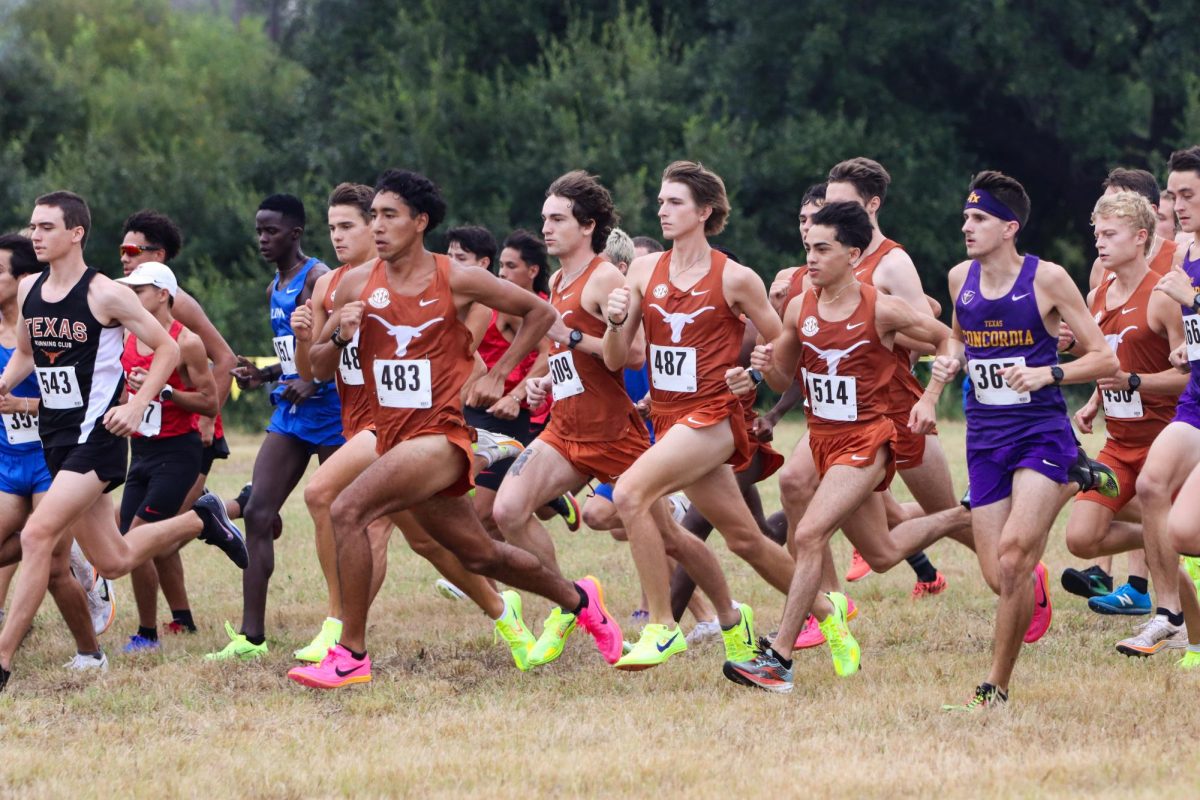Steve Patterson, men's head athletic director, said strengthening the Texas Longhorns brand is one of his priorities in a discussion hosted by The Texas Tribune on Thursday.
Patterson compared the business of college sports to his experience working in professional sports, where he worked with teams including the Portland Trail Blazers and the Houston Texans. Patterson said the relationship between fans of college sports and the teams is much more long-term than in professional sports, and this has the potential to benefit the college team’s brand.
“Given the depth and breadth of the emotional attachment over [multiple] generations and the number of people that come through our doors, the number of eyeballs that watch our games, the number of folks that buy merchandise… I don’t think we’ve sufficiently leveraged college athletics as an industry,” Patterson said.
According to data from the U.S. Department of Education, the UT athletics department made more than $165 million in 2012-2013, which is about $20 million higher than the next university on the list, Ohio State. UT also spent the most on athletics of any other university in the country at $138 million. Patterson said the athletic department contributes between $5 and $10 million yearly to the University.
Patterson said raising the rates people pay for UT athletics, including ticket prices and corporate sponsorship rates, would be practical because these rates are undervalued compared to professional sports.
Michael Choate, an Austin attorney who attended the Tribune event, said Texas sports events, especially football games, are an important factor when people are deciding which college to attend, so he wouldn’t support an increase in football ticket prices.
“What about that kid from outside Austin [who] wants to go to a UT football game that maybe can’t afford a ticket rate hike, and that may be their one chance to kind of get a feel for the University of Texas?” Choate said. “Going to football games and stuff like that is such a great visceral experience. Honestly, when I went to my first UT game when I was a lot younger, it sold me on the university.”
Patterson said promoting the image of UT is difficult because in college sports, there are many rules about what UT officials are allowed to discuss. Because professional sports have fewer rules regarding what officials can discuss publicly, the team’s officials can provide better information to consumers, generating more revenue because the consumers are more informed.
The amount of time student athletes spend on sports is comparable to a full-time job, Patterson said. Patterson said he thinks student athletes are already compensated for their work, and if athletes want to be paid, they should play for professional sports teams.
“We’re already compensating [student athletes] with a full scholarship to come to a great place like the University of Texas,” Patterson said.
Petroleum engineering junior Colin Mosley said he thinks while the full-ride scholarship some student athletes receive is beneficial, they should be paid a little bit because they bring so much revenue to the school, although this is unrealistic. Treating student athletes as employees would create more inequality between small and large schools because large schools have more money, Mosley said.
“All the good athletes would go to the big schools that would pay them,” Mosley said. “It would make the game less fair for smaller schools if students got paid.”
Patterson also said if the University paid some athletes, it wouldn’t have enough money to fund other departments.
“If you really want to go out there and start turning the football players into employees, and paying them, you’re not going to have the resources to support the other programs,” Patterson said. “You pick winners and losers instead of trying to present a broad base of student athletics on the campus.”







